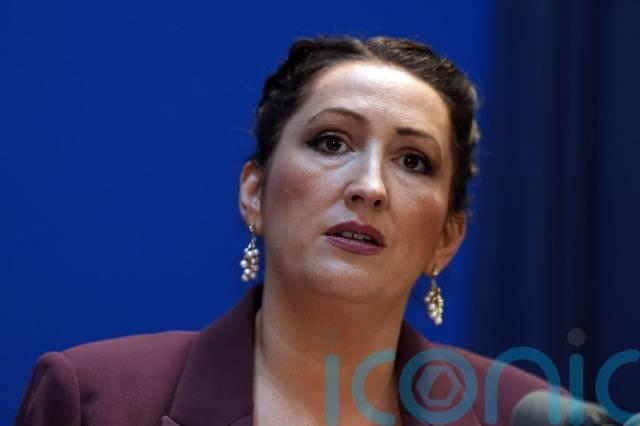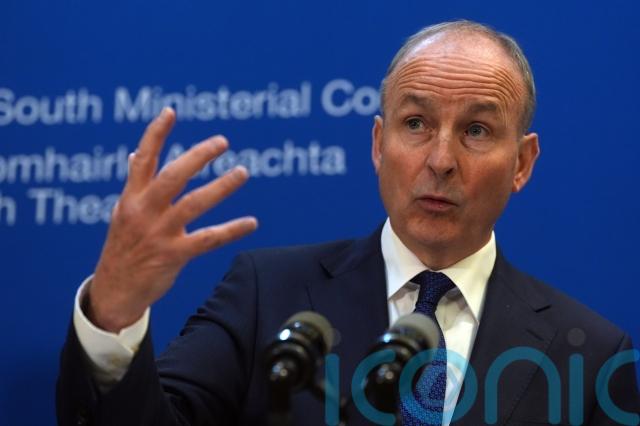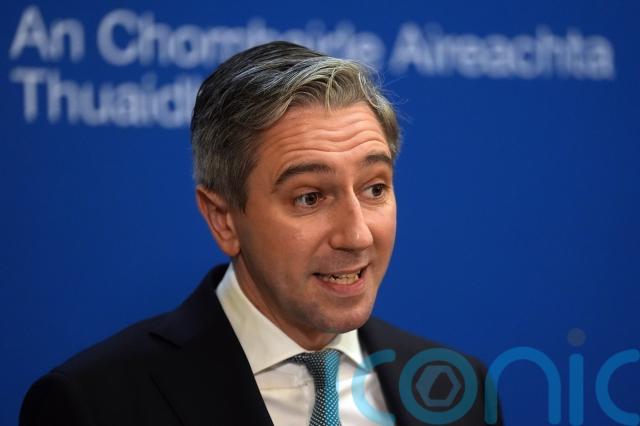
Ireland’s interstate case against the UK Government on legacy matters should be “dropped immediately”, Northern Ireland’s deputy First Minister has said.
Emma Little-Pengelly made the assertion after Taoiseach Micheal Martin said dropping the case is “on the agenda” of negotiations between the two governments in dealing with legacy issues in Northern Ireland.
The UK Government has put forward new legislation aimed at dealing with the legacy of the Northern Ireland conflict, which has been welcomed by Dublin following extensive engagement.
The original Legacy Act brought by the last Conservative government was opposed by victims’ groups and political parties in Northern Ireland, and it led the Irish Government to launch an interstate legal case against the UK, claiming it breached the European Convention on Human Rights (ECHR).

Mr Martin has welcomed progress on the matter, telling reporters on Friday that there had been “significant improvement” on the old legislation.
He said the new proposals meet a lot of the concerns articulated by victims’ groups.
Meanwhile, Tanaiste Simon Harris said it would “almost be disrespectful” to unionists to drop the case before the new legislation passes through the House of Commons.
Asked if the Irish Government would drop its case as a confidence-building measure for unionists, Mr Martin said: “That’s all on the agenda in terms of the negotiations that have taken place.”
Speaking to reporters at the North South Ministerial Council at Farmleigh House in Dublin on Friday, he said: “The whole context is to have an agreed position between the Irish Government and the British Government in respect of legacy.
“We’ve achieved that, and we have to bring in legislation as well. The UK Government has published its legislation, so we’re making very good progress.”
Mr Martin said that the unionist community will see evidence in the Irish Government co-operating with various inquiries and requests for information – including the memorandum of understanding with the Omagh Bombing Inquiry.

He said: “That will probably be more significant in terms of unionist confidence in the position of the Irish Government.”
However, on repeated questioning about dropping the case, Mr Martin said he anticipated the outcome of engagement with the UK Government “will be a positive one”.
However, Ms Little-Pengelly said unionists believe the interstate case should never have been taken in the first place.
“It’s not and should never have been up to the Irish Government to be holding the feet of the British Government to the fire under the threat of a continuance of an interstate case.
“We believe that the interstate case should never have been taken in the first place.
“I think it has caused a huge amount of upset for many people, particularly the unionist community.”
She added: “Whenever there is a move by the UK Government, particularly around issues about veterans. You see the Irish Government move in relation to the interstate case.
“I believe it should be dropped immediately. I think that the UK Government has had a wide-ranging discussion on a number of actions and legacy legislation has been dropped.”
Responding to her comments, Mr Harris said: “At the very heart of the interstate case was highlighting the need to have a human-rights compliant and ECHR-compliant legacy infrastructure.

“What we now have is a joint framework agreement that, if translated into legislation, could bring us there but we don’t currently have that until the legislation passes the House of Commons and that’s what we’re working through in good faith.”
Mr Harris said the two governments were “moving in a very good direction” but said it was “no surprise” around the Irish Government’s “sequencing” around dropping the case.
“I’d actually say very respectfully to unionist colleagues, it would almost be disrespectful if the Irish Government was to presume the outcome of the House of Commons deliberation on the legislation.”
He added: “We’re actually being respectful to the process that the British Government and British Parliament will now undertake.
“What I’d also say is we’ve already started to take steps to fulfil our applications under the joint partnership agreement.”
Ministers from both sides of the border discussed a range of issues including emergency planning, business promotion and gender-based violence at the council.
The 30th plenary meeting of the North South Ministerial Council, a body set up after the Good Friday Agreement, was held at Farmleigh House in Dublin.
It brings together ministers from the Government of Ireland and the Northern Ireland Executive twice a year.
Ministers also attended a dinner on Thursday evening.
Subscribe or register today to discover more from DonegalLive.ie
Buy the e-paper of the Donegal Democrat, Donegal People's Press, Donegal Post and Inish Times here for instant access to Donegal's premier news titles.
Keep up with the latest news from Donegal with our daily newsletter featuring the most important stories of the day delivered to your inbox every evening at 5pm.